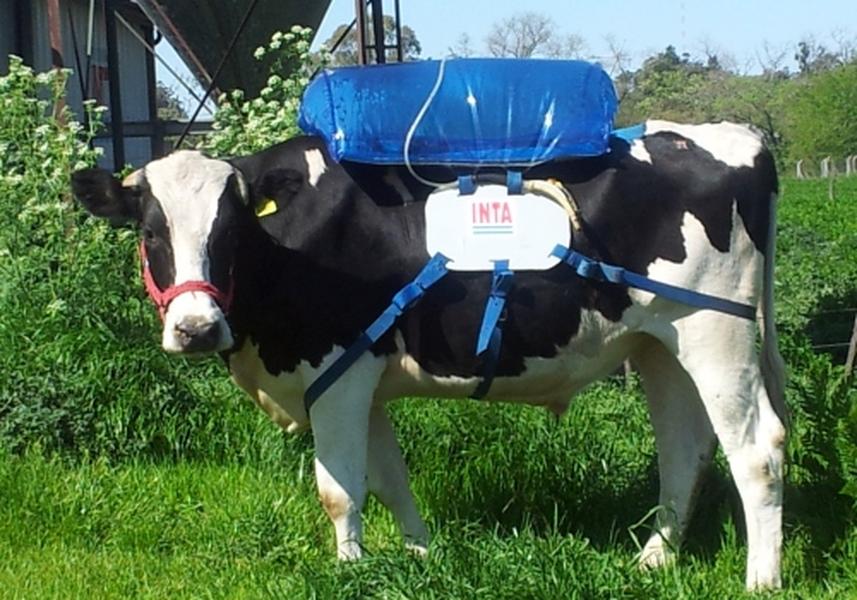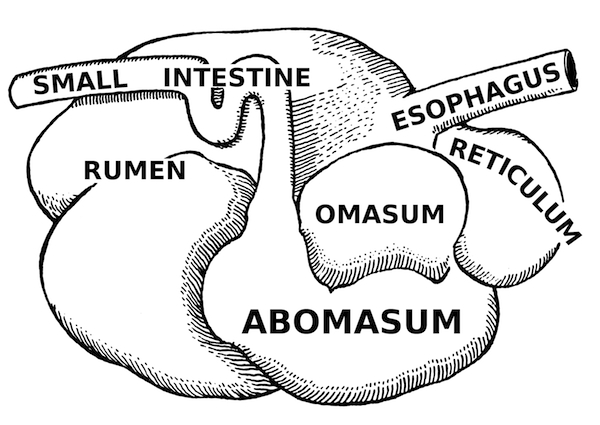Argentina wants to turn cow flatulence into a clean energy source
INTA


A free daily email with the biggest news stories of the day – and the best features from TheWeek.com
You are now subscribed
Your newsletter sign-up was successful
Cow flatulence is kind of funny, but it's no joke. Bovine belching and farting are pretty significant sources of methane gas, which makes them not insignificant contributors of the greenhouse gases behind global climate change. Methane is also the main ingredient in natural gas, and as anyone who has watched Mad Max Beyond Thunderdome knows, livestock-produced methane can (in theory) be harnessed to produce large amounts of electricity.
Last fall, Argentina turned that theory into practice. The country's National Institute of Agricultural Technology (INTA) came up with a method of capturing cow-produced methane before it enters the atmosphere through the mouth or intestinal tract, then compressing that gas and using it to make biofuel to generate electricity or even power a car. "A cow emits about 300 liters of methane a day," or 80 gallons, explains INTA technician Ricardo Buelo.
Basically, INTA's contraption starts with a tube inserted through a cow's skin and into the rumen, or the largest of a cow's digestive tracts. The other end of the tube is connected to a backpack that collects the gas, which is then condensed down into usable form. INTA insists that the procedure is painless for the cow.
The Week
Escape your echo chamber. Get the facts behind the news, plus analysis from multiple perspectives.

Sign up for The Week's Free Newsletters
From our morning news briefing to a weekly Good News Newsletter, get the best of The Week delivered directly to your inbox.
From our morning news briefing to a weekly Good News Newsletter, get the best of The Week delivered directly to your inbox.

(Pearson Scott Foresman/Wikimedia Commons)
Fast Company's Ben Schiller, who discovered these plans this week and spoke with INTA's press office, reports that the methane-capturing gas packs are more a proof-of-concept idea rather than a full-bore solution to global warming. But INTA spokesman Pablo Sorondo says he believes they could be used to power a farm or, in a collective, provide electricity to an entire town. Hey, it worked in Mad Max's Bartertown.
A free daily email with the biggest news stories of the day – and the best features from TheWeek.com
Peter has worked as a news and culture writer and editor at The Week since the site's launch in 2008. He covers politics, world affairs, religion and cultural currents. His journalism career began as a copy editor at a financial newswire and has included editorial positions at The New York Times Magazine, Facts on File, and Oregon State University.
-
 What is the endgame in the DHS shutdown?
What is the endgame in the DHS shutdown?Today’s Big Question Democrats want to rein in ICE’s immigration crackdown
-
 ‘Poor time management isn’t just an inconvenience’
‘Poor time management isn’t just an inconvenience’Instant Opinion Opinion, comment and editorials of the day
-
 Bad Bunny’s Super Bowl: A win for unity
Bad Bunny’s Super Bowl: A win for unityFeature The global superstar's halftime show was a celebration for everyone to enjoy
-
 Blue Origin launches Mars probes in NASA debut
Blue Origin launches Mars probes in NASA debutSpeed Read The New Glenn rocket is carrying small twin spacecraft toward Mars as part of NASA’s Escapade mission
-
 Dinosaurs were thriving before asteroid, study finds
Dinosaurs were thriving before asteroid, study findsSpeed Read The dinosaurs would not have gone extinct if not for the asteroid
-
 SpaceX breaks Starship losing streak in 10th test
SpaceX breaks Starship losing streak in 10th testspeed read The Starship rocket's test flight was largely successful, deploying eight dummy satellites during its hour in space
-
 Rabbits with 'horns' sighted across Colorado
Rabbits with 'horns' sighted across Coloradospeed read These creatures are infected with the 'mostly harmless' Shope papilloma virus
-
 Lithium shows promise in Alzheimer's study
Lithium shows promise in Alzheimer's studySpeed Read Potential new treatments could use small amounts of the common metal
-
 Scientists discover cause of massive sea star die-off
Scientists discover cause of massive sea star die-offSpeed Read A bacteria related to cholera has been found responsible for the deaths of more than 5 billion sea stars
-
 'Thriving' ecosystem found 30,000 feet undersea
'Thriving' ecosystem found 30,000 feet underseaSpeed Read Researchers discovered communities of creatures living in frigid, pitch-black waters under high pressure
-
 New York plans first nuclear plant in 36 years
New York plans first nuclear plant in 36 yearsSpeed Read The plant, to be constructed somewhere in upstate New York, will produce enough energy to power a million homes
